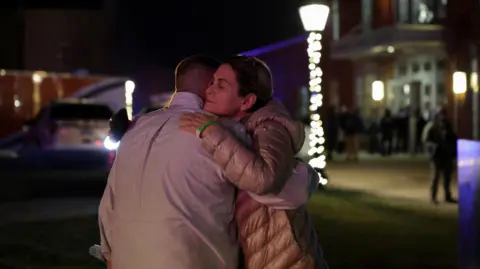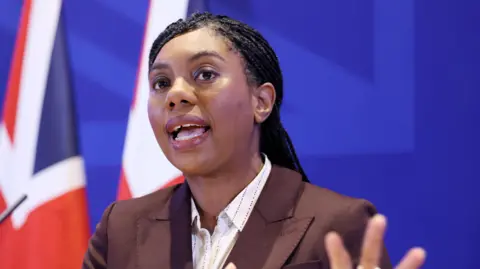Reading view
The Billionaires Have No One to Blame but Themselves
Home-Schooled Kids Are Not All Right
英媒:欧盟拟严打大量涌入的中国“不安全”包裹 - RFI - 法国国际广播电台

欧盟司法委员麦格拉斯(Michael McGrath)受访表示,欧盟计划打击在中国电商平台阿里巴巴、中资电商平台Shein等平台销售的“极其危险”产品,并坦言“我们需要做得更好”,以保护欧洲消费者。
麦格拉斯(Michael McGrath)接受英国《金融时报》采访时说道,欧盟未能充分保护其公民免受直接从中国寄到消费者家中的不安全商品激增威胁。
麦格拉斯还说:“我对于大量不安全产品涌入欧盟深感担忧。我认为,我们有责任更好地保护欧盟公民,也有责任确保欧洲企业在一个公平的竞争环境中营运。”
他指出,各国当局年复一年都会查获非常危险且可能对个人生活造成终身影响的产品,甚至可能导致人员伤亡。
麦格拉斯坦言,海关与执法人员不堪重负,进到欧盟的不安全产品只有极少部分被拦截下来。
他提到,2024年约有46亿件低价包裹进入欧盟,而且这项数据每两年就翻倍。其中大约90%来自中国。
麦格拉斯的计划包括赋予欧盟委员会权力,调查最严重的跨国案件,以减轻各国当局的压力。
他还建议更新消费者保护和市场监管的法规,“目前体制并不完善”。
麦格拉斯说道,当消费者团体发现危险商品,平台通常只要下架就好,“我认为需要更强力的吓阻措施”。
化妆品与玩具是最常见的被查获商品类型。
欧盟技术法规将相关电商归类为平台而非零售商,因此它们无需对透过其网站购买的商品承担责任,这些商品通常直接来自欧盟以外的零售商。
然而,一旦发现问题商品,平台必须跟相关当局合作,并将商品下架。
欧洲玩具产业协会(Toy Industries of Europe)最近一项调查发现,欧盟境内仍有大量危险玩具在在线贩卖,其中包含有毒的史莱姆(slime),还有一些玩具装着容易拆卸且吞咽的电池。
欧盟当局上个月指出,正依据欧盟「数字服务法」(Digital Services Act)审查Shein贩卖的可能违法产品,包括儿童外型情趣娃娃及武器。
巴黎当局先前要求暂停希音Shein在法国的营运,理由是该网站涉嫌宣传此类违法产品。法国也以类似理由寻求封禁中国阿里巴巴集团旗下的全球速卖通(AliExpress)和总部设于葡萄牙的Joom等平台。
欧盟上个月同意对价值不到150欧元且直接寄给消费者的包裹取消免关税优惠,欧盟各国财长又于本月12日达成同意,明年7月1日起对所有进口小型包裹征收3欧元关税。
美国政府今年取消价值低于800美元的小额包裹关税豁免,麦格拉斯表示,此举显著减少寄往美国的小包裹数量。
希音Shein回复宣称,公司跟欧盟执委会的目标一致,即是确保欧盟消费者能安心在网络购物,公司正与法国当局“全力合作”。
阿里巴巴和Joom则没有回应《金融时报》的置评请求。
香港国安法实施后的标志性案件 黎智英案即将宣判
2025-12-14T11:08:35.662Z

(德国之声中文网)香港法院将于周一(12月15日)对前民主派媒体大亨黎智英一案作出宣判。黎智英被控串谋勾结境外势力危害国家安全罪以及煽动罪。
78岁的黎智英于2020年被捕,依据的是中国当局为镇压2019年席卷香港的大规模反政府抗议活动而实施的国安法。
美联社报道指出,该案长达156天的审判受到外国政府和政治观察家的高度关注,被普遍视为对这个前英国殖民地司法独立和新闻自由的一次考验。香港在1997年回归中国后,曾被承诺可以维持50年的西式公民自由。
香港长期以来以其充满活力的新闻媒体和亚洲的抗议文化而闻名。2019年,数十万人参加的持续数月的反政府抗议活动之后,北京随即展开了一场大规模的镇压,扼杀了这座城市的大部分公开异议的发声渠道。
黎智英是首批根据《国家安全法》被起诉的知名人士之一,该法也被用来起诉其他一些主要活动人士和反对派政治人物。北京方面则强调,该法律对维护香港的稳定至关重要。
黎智英创办的《苹果日报》以其鲜明的民主立场而闻名。他自称秉持着“传递信息等同于传递自由”的信念。他的报纸以通俗易懂的方式报道政治和名人,并坚持强烈的民主立场,吸引了大量读者。该报经常呼吁读者参与抗议活动。
黎智英本人也曾多次走上街头,包括参加2019年的抗议活动。
2020年8月,香港警方突袭了苹果日报大楼,并以涉嫌触犯国安法为由逮捕了黎智英。
此后香港特区政府根据《香港国安法》拘捕了多名高层并冻结了《苹果日报》的资金,该报社的资金链断裂,最终于2021年6月24日停止了其26年的业务。
对黎智英最严重的指控是,他与他人“以争取自由和民主为幌子”,邀请美国和其他外国势力对中国实施制裁。
一个关键问题是,黎智英是否在国安法生效后发出过此类呼吁。黎智英并未否认他此前曾呼吁制裁,但坚称在国安法生效后便停止了此类呼吁。
检方辩称,尽管黎智英在法律生效后并未直接要求制裁,但他试图“制造对中国的虚假印象”,为外国对中国实施惩罚制造正当性。同时指出他曾在网络上发表批评香港和中国的评论文章。
黎智英的律师彭耀鸿(Robert Pang)回应称,黎智英的评论相当于饭桌上的“闲谈”,并无实质影响。
黎智英本人也表示,他写作“没有任何敌意或煽动叛乱的意图”。
检方还着重强调了黎智英的海外关系,包括在2019年香港抗议活动高峰期,他与美国前国务卿蓬佩奥和时任副总统彭斯的会面。检方认为,黎智英的海外关系显示其“坚定不移地意图寻求”对中国和香港实施制裁、封锁或其他敌对行动。
六名涉案的《苹果日报》高管于2022年认罪,其中一些人作为控方证人出庭作证。
相关图集:香港告别《苹果日报》
 创办人黎智英:《苹果日报》1995年由富商黎智英创办。少年时从广东偷渡至香港的黎智英曾公开支持89民运,并因此受到大陆官方的制裁。他于1990年创办壹传媒有限公司后,旗下出版《壹周刊》等报刊杂志,之后扩展到电视、网络等媒体,并于2003年创设台湾《苹果日报》。黎智英曾在电视广告中咬着苹果说「每日一苹果,没人骗到我!」
创办人黎智英:《苹果日报》1995年由富商黎智英创办。少年时从广东偷渡至香港的黎智英曾公开支持89民运,并因此受到大陆官方的制裁。他于1990年创办壹传媒有限公司后,旗下出版《壹周刊》等报刊杂志,之后扩展到电视、网络等媒体,并于2003年创设台湾《苹果日报》。黎智英曾在电视广告中咬着苹果说「每日一苹果,没人骗到我!」 颠覆香港报界:为吸引读者,《苹果日报》采用彩色印刷、新潮排版及口语化大标题,内容上也包罗万有。该报创刊短短几个月内,便彻底颠覆了香港报业的游戏规则。不过该报为了销量不惜哗众取宠,因狗仔队文化丶卖弄色情暴力等,被指过分煽情和娱乐化,并不时陷入道德指责以及司法纠纷。但其调查性报导也得到读者的认可。香港中文大学2019年的传媒公信力调查显示,《苹果日报》在香港收费报纸中排名第三。
颠覆香港报界:为吸引读者,《苹果日报》采用彩色印刷、新潮排版及口语化大标题,内容上也包罗万有。该报创刊短短几个月内,便彻底颠覆了香港报业的游戏规则。不过该报为了销量不惜哗众取宠,因狗仔队文化丶卖弄色情暴力等,被指过分煽情和娱乐化,并不时陷入道德指责以及司法纠纷。但其调查性报导也得到读者的认可。香港中文大学2019年的传媒公信力调查显示,《苹果日报》在香港收费报纸中排名第三。
 拒绝被“染红”:该报立场鲜明,有多个时事评论专栏批评中共高层和港府,并经常报导内地维权人士如刘晓波等状况,同时高调支持香港民主运动,多次在社会运动中表态,甚至呼吁读者上街。1997年香港主权移交後,《南华早报》丶《明报》等多家本地报章相继被中资入主丶收购,《苹果日报》被视为香港唯一未被「染红」的主流媒体。
拒绝被“染红”:该报立场鲜明,有多个时事评论专栏批评中共高层和港府,并经常报导内地维权人士如刘晓波等状况,同时高调支持香港民主运动,多次在社会运动中表态,甚至呼吁读者上街。1997年香港主权移交後,《南华早报》丶《明报》等多家本地报章相继被中资入主丶收购,《苹果日报》被视为香港唯一未被「染红」的主流媒体。
 国安法紧箍咒:从2014年的雨伞运动到2019年的返修例运动中,《苹果日报》可谓立场鲜明。2020年8月10日,该报创办人黎智英涉《香港国安法》 被捕,《苹果日报》总部被警方搜查。次日该报头条标题为"苹果一定撑落去",印量由两星期前的7万多份涨到55万份,市民们排长队购买。
国安法紧箍咒:从2014年的雨伞运动到2019年的返修例运动中,《苹果日报》可谓立场鲜明。2020年8月10日,该报创办人黎智英涉《香港国安法》 被捕,《苹果日报》总部被警方搜查。次日该报头条标题为"苹果一定撑落去",印量由两星期前的7万多份涨到55万份,市民们排长队购买。 台湾停刊:2021年5月15日,发行18年的《台湾苹果日报》宣布停刊。公告称,“《台湾苹果日报》在新闻战场并没有输”,而是“输在香港局势恶化,造成我们无法再长期支撑亏损”,因此 “忍痛割捨纸本”,集中资源发展《苹果新闻网》。同一天,其母公司香港壹传媒创办人黎智英的财产被冻结,香港保安局的依据是“香港国安法”。
台湾停刊:2021年5月15日,发行18年的《台湾苹果日报》宣布停刊。公告称,“《台湾苹果日报》在新闻战场并没有输”,而是“输在香港局势恶化,造成我们无法再长期支撑亏损”,因此 “忍痛割捨纸本”,集中资源发展《苹果新闻网》。同一天,其母公司香港壹传媒创办人黎智英的财产被冻结,香港保安局的依据是“香港国安法”。
 逮捕高层 冻结资产:2021年6月17日,警方以涉嫌违反国安法为由第二次搜查《苹果日报》,拘捕5名报社高管。该报被指刊文呼吁外国制裁香港及中国,涉嫌“串谋勾结外国势力危害国家安全”。 当局还冻结《苹果日报》三家关联公司资产共1800万港元,造成报社无法继续运营。
逮捕高层 冻结资产:2021年6月17日,警方以涉嫌违反国安法为由第二次搜查《苹果日报》,拘捕5名报社高管。该报被指刊文呼吁外国制裁香港及中国,涉嫌“串谋勾结外国势力危害国家安全”。 当局还冻结《苹果日报》三家关联公司资产共1800万港元,造成报社无法继续运营。 民众排队购买最后一份报:6月23日,壹传媒宣布,《苹果日报》24日出版最后一期印刷版后,即日停刊,网络版也同时终止运作。最终版的头版标题是“港人雨中痛别,我哋撑苹果”,印刷了创纪录的100万份。香港街头再次出现市民排长队买《苹果》的景象。
民众排队购买最后一份报:6月23日,壹传媒宣布,《苹果日报》24日出版最后一期印刷版后,即日停刊,网络版也同时终止运作。最终版的头版标题是“港人雨中痛别,我哋撑苹果”,印刷了创纪录的100万份。香港街头再次出现市民排长队买《苹果》的景象。黎智英是英国公民,他的案件引起了包括美国和英国在内的外国政府的关注。两国都呼吁释放黎智英。
美国总统特朗普表示,他已就此案向中国提出交涉。英国首相斯塔默也表示,英国政府已将确保黎智英获释列为优先事项。
但北京方面称黎智英是“外国反华势力的代理人和棋子”,并称他是香港骚乱事件的主要策划者。
今年9月9日,黎智英的儿子黎崇恩在接受法新社采访时说:“我很痛心这样说,但如果我父亲死在狱中,他实际上会成为更强大的自由象征,成为为信仰的殉道者。”他还说,其实释放黎智英也符合北京自身的利益。“你也看到过很多异议人士,一旦他们获释,就会失去很多所谓的‘力量’。”
DW中文有Instagram!欢迎搜寻dw.chinese,看更多深入浅出的图文与影音报道。
© 2025年德国之声版权声明:本文所有内容受到著作权法保护,如无德国之声特别授权,不得擅自使用。任何不当行为都将导致追偿,并受到刑事追究。
The S.E.C. Was Tough on Crypto. It Pulled Back After Trump Returned to Office.

© Mark Harris
How The Times Analyzed the S.E.C.’s Cryptocurrency Enforcement

© Alyssa Schukar for The New York Times
The War on ‘Wokeness’ Comes to the U.S. Mint

The Army Made a Blind Black Soldier a Surrogate for Robert E. Lee

© National Museum of African American History and Culture
The Dark Side of the Global Surrogacy and Fertility Industry
The Billionaires Have No One to Blame but Themselves

© Illustration by Rebecca Chew/The New York Times
Floods, Mud and Cold Add to Gazans’ Misery
Washington Residents Return Home to Extensive Flood Damage

© Grant Hindsley for The New York Times
Chile Votes in Presidential Runoff
Deadly Attack in Syria on U.S. Troops Exposes Growing Challenges for Country’s Leader

© Daniel Berehulak/The New York Times
What We Know About the American Troops in Syria

© John Moore/Getty Images
Hong Kong Court to Give Verdict on Media Mogul Who Took on China
A Free World Needs a Strong America
港澳特首星期一起赴京述职
香港和澳门特首星期一前往北京述职,香港特首李家超将向中国国家主席习近平汇报大埔致命火灾相关情况。
香港和澳门特区政府网站公布, 香港特首李家超和澳门特首岑浩辉将于星期一(12月15日)至星期三(17日)前往北京述职。
岑浩辉将向国家领导人汇报澳门特区政府过去一年的施政工作和2026年的施政重点。他不在澳门期间,由行政法务司司长黄少泽临时代理特首职务。
与此同时,李家超将向国家领导人汇报香港经济、社会和政治等方面的最新情况。行政长官办公室主任叶文娟和行政长官私人秘书黄霆芝将会随行。
李家超星期五(12日)召开记者会宣布成立独立委员会调查大埔火灾时透露,他赴北京述职时,将向习近平汇报火灾情况,以及独立委员会的工作进度。
大埔宏福苑11月26日发生香港近80年来最严重火灾,造成160人死亡。社会对起火原因的高度关注。
在李家超离港期间,政务司司长陈国基将署理行政长官职务。
A Free World Needs a Strong America
巴伐利亚警方挫败圣诞市场恐袭阴谋 5名嫌疑人被捕
2025-12-14T09:09:06.227Z

(德国之声中文网)德国巴伐利亚州警方近日逮捕了5名涉嫌策划对圣诞市场实施恐怖袭击的男子。负责调查的慕尼黑检察官办公室目前尚未公布案件的具体细节,仅表示初步判断作案动机与极端伊斯兰主义有关。嫌疑人显然将目标锁定在巴伐利亚州丁戈尔芬(Dingolfing)附近的一处圣诞市场,并可能计划使用车辆实施袭击。丁戈尔芬距慕尼黑约100公里。
这5名男子于本周五(12月12日)被捕。目前尚不清楚警方是如何追踪到他们的,也未披露其拟使用的具体作案车辆。
调查人员称,被捕者包括一名56岁的埃及籍男子、一名37岁的叙利亚籍男子,以及三名年龄分别为22岁、28岁和30岁的摩洛哥籍男子。检察官办公室指出,这名埃及籍伊斯兰教传教士涉嫌在丁戈尔芬—兰道地区的一座清真寺内号召发动袭击,并煽动“造成尽可能多的死伤”。
据称,三名摩洛哥籍嫌疑人已做好实施袭击的准备,而那名居住在德国北部的叙利亚籍男子则怂恿他们作出实施袭击的决定。
德新社报道称,目前尚无证据表明该案与恐怖组织“伊斯兰国”(IS)存在关联。
巴伐利亚州内政部长约阿希姆·赫尔曼(Joachim Herrmann)表示:“得益于安全部门之间的出色协作,多名嫌疑人在极短时间内被捕,从而成功阻止了巴伐利亚州可能发生的一起伊斯兰极端主义袭击。”
DW中文有Instagram!欢迎搜寻dw.chinese,看更多深入浅出的图文与影音报道。
© 2025年德国之声版权声明:本文所有内容受到著作权法保护,如无德国之声特别授权,不得擅自使用。任何不当行为都将导致追偿,并受到刑事追究。
'Never give up': Belarusian prisoners celebrate release after US lifts sanctions
Rumours of a major prisoner release from Belarus had been swirling for a couple of days.
But no one would reveal the names on the list, or the exact number, until everyone was safely out, finally free.
In total,123 political prisoners have been released, including some of the best-known names among Belarusian opposition politicians, human rights activists and journalists.
Maria Kolesnikova, the protest leader with a famous red-lipsticked smile, was on the release list.
A video of her jumping for joy and hugging other former prisoners, overjoyed to be reunited, was soon flying around social media. Then came another, on a bus out of Belarus, where she thanked everyone who'd helped bring this moment about.
"It's a feeling of incredible happiness to see those who are dear to me, to hug them and realise we are all free," Masha, as she's best known, told the camera, her lips already painted red again.
The first sunset of her freedom was a thing of great beauty, she said.
"But I also think of those who are not yet free and I await the moment when we can all embrace, when all are free."

 Reuters
ReutersOut too is Viktor Babaryka, a banker who tried to run for president in 2020 but was locked up before the elections even began.
The Nobel Peace prize winner Ales Bialiatski has also been released from a 10-year sentence.
All were locked up for their opposition to the authoritarian rule of Alexander Lukashenko, whose security forces crushed the mass protests of 2020 with brutal force. They were the biggest challenge to his rule that he has ever faced.
The prisoners' release now is the result of long and complex negotiations led by the US that culminated in a two-day visit to Minsk this week by Donald Trump's new special envoy, John Coale.
For Lukashenko, that engagement itself is a win: after years as a political pariah in the West he is clearly happy to be back on talking terms with the US.
But he also got US sanctions dropped on a key export for his country, potash, as a further, more tangible reward. EU penalties - and tougher policies - are still in place.
It's not entirely clear what Trump has to gain from this. But Belarus is a close ally of Russia, including in its war on Ukraine, and the move comes as the US has been re-engaging with Moscow too, seeking a peace deal.

 EPA/Shutterstock
EPA/ShutterstockThe dozens of prisoners Lukashenko agreed to let go were always expected to come here to Vilnius, Lithuania, where a crowd of friends, relatives and fellow activists gathered outside the US embassy in the freezing cold to greet them.
Some came wrapped in the red and white opposition flag of Belarus.
Tatsiana Khomich, Masha Kolesnikova's sister who had campaigned for over five years for her release, couldn't stop smiling. "I've just spoken to Masha," she told me after a video call.
A professional flautist before the disputed 2020 elections, Kolesnikova spent much of her more than five-year sentence in total isolation, denied even letters and phone calls to her family.
"She's fine, she's good. I just want to hug her. I still can't quite believe it," her sister said.
Suddenly, there was a commotion in the crowd: a police car, blue lights flashing, was heading towards the US embassy gates, leading a small convoy of other vehicles.
But there was no way all 123 ex-prisoners were inside. Instead, we learned, just seven foreign nationals had been brought to Lithuania and only Ales Bialiatski of the Belarusians.
'Optimism and activism'
The others, including Kolesnikova, had been taken out of Belarus to Ukraine: from prison, into a war zone.
Staying in their own country is not usually an option on offer.
"Lukashenko's idea, who else?" was how one of opposition leader Svetlana Tikhanovskaya's team interpreted the surprise diversion to Ukraine. It seems he'd decided to play one final power game, so the family reunions, so long awaited, would be delayed.
But what of the price paid for that moment? Tikhanovskaya is a friend and political ally of Masha Kolesnikova, but she always calls for maximum pressure on Lukashenko by the West.
So has the US gone too far, I wondered.
"This is a process of negotiation. Of course, it would be good for us if nothing is given to Lukashenko, because all those people are hostages of his regime. They are innocent.
"But this is how negotiation goes," she replied, before noting that sanctions can always be reapplied if necessary.
"President Trump now uses carrots. He also can use sticks."
A few steps away, a man waving a giant flag worried that Lukashenko would just take more prisoners. This is not a sign of sudden humanity, he said.
After a short time inside the US embassy, Ales Bialiatski emerged onto the street to ecstatic cheers from the crowd.
Gaunt, head shaven and still in his padded blue prison jacket, he admitted his head was spinning from all the sensations after four years in jail.
"I was driven across Belarus in a blindfold, from east to west, so I still can't get my head round it. This is so emotional," he shared, describing being woken at 04:00 and told by his prison guard to pack.
When I asked what he wanted now most of all he didn't hesitate: "I want to see my wife!"
She's on her way, I was told.
Bialiatski's own organisation, Viasna, monitors political detentions in Belarus and the activist reminded everyone that many people like him - only less well known - have been left behind bars.
"It is very important for everyone to continue to work for those political prisoners who are still in Belarusian prisons, to strive for the complete release of all of them."
Then, lifting the red and white flag from his shoulders, he had a message for Belarusians everywhere.
"Optimism and activism," Ales Bialiatski told them, with a sudden smile. "Never give up!"
Five arrested over plot to attack German Christmas market

 Getty Images
Getty ImagesFive men have been arrested in Germany suspected of being involved in a plot to drive a vehicle into people at a Christmas market.
Three Moroccans, an Egyptian and a Syrian were detained on Friday over the plan to target a market in the southern Bavarian state. Authorities said they suspected an "Islamist motive".
Prosecutors said the Egyptian - a 56-year-old - was alleged to have "called for a vehicle attack... with the aim of killing or injuring as many people as possible". The Moroccans allegedly agreed to carry out the attack.
Officials in Germany have been on high alert after previous attacks at Christmas markets, including in Magdeburg last December that killed six people.
Authorities did not say when the planned attack was supposed to take place or which market was the target, though said they believed it to be one in the Dingolfing-Landau area, north east of Munich.
German newspaper Bild reported the Egyptian man was an imam at a mosque in the area.
Police said the Moroccan men - aged 30, 28 and 22 - were arrested accused of having agreed to commit murder, while the Syrian man, a 37-year-old, was accused of encouraging the suspects "in their decision to commit the crime".
The five suspects appeared before a magistrate on Saturday and remain in custody.
Joachim Herrmann, Bavaria's state interior minister, told Bild the "excellent cooperation between our security services" had helped to prevent "a potentially Islamist-motivated attack".
Christmas markets are popular festive attractions throughout Germany, frequently attracting large crowds and significant tourism.
Security at events has been increased in recent years, since an attack in Berlin in 2016 when a man drove a lorry into a market crowd, killing 12 people.
Manhunt continues after two killed in shooting at Brown University
A manhunt is under way after two students were killed and nine other people were injured in a mass shooting at Brown University in Providence, Rhode Island.
The gunman opened fire in a classroom at around 16:00 local time (21:00 GMT) on Saturday, in a building where exams were taking place.
The university, one of the oldest and most prestigious in the US, was placed into lockdown as police searched for the gunman, who remains at large.
Students in parts of the campus are continuing to be told to shelter in place until police can escort them out of the area.
Officials from Rhode Island Hospital said most of the injured are in a "critical but stable" condition.
The identities of those killed or injured have not yet been released by officials.
"This is a day that we hoped never would come to our community. It is deeply devastating for all of us," said Brown University President Christina Paxson in a statement.
Police have released limited information about the male suspect, including an identity or motive. It is not known if he has links to the university.
CCTV footage showed the suspect walking out of the building after the attack but the his face can not be seen.
Providence Deputy Police Chief Tim O'Hara said the suspect was dressed all in black and may have been wearing a mask. It is not known what type of firearm he used and it has not been recovered.
"We're utilising every resource possible to find this suspect," he added, with extra armed police resources drafted into to search the area.
The shooting happened at the Barus and Holley building, part of Brown University's engineering school. The attack happened in a large classroom on the first floor.
An economics professor told local public media outlet Ocean State Radio that the shooting took place during a review session for her course, which was led by her teaching assistant.
"He said that the shooter came in the doors, yelled something - he couldn't remember what he yelled - and started shooting," Rachel Friedberg said.
"Students started to scramble to try to get away from the shooter, trying to get lower down in the stadium seating, and people got shot," she added.
Officials cleared the building on Saturday afternoon but found neither the suspect nor a weapon.
Residents in the greater Brown University area have been told to stay inside, or to stay away until the shelter-in-place order is lifted.
In a statement, the university said police would enter non-residential buildings to escort people to safe locations.
Steph Machado, a reporter for the Boston Globe, told BBC News that restaurants around the campus have locked their doors with staff and customers waiting inside until the emergency order is lifted.
"There are flashing lights everywhere," she said.
In the immediate aftermath of the shooting, it was reported that a suspect had been taken into custody but it was quickly confirmed the man held had no involvement in the attack.
Mari Camara, 20, a Brown University student from New York City, told the Associated Press that she was coming out of the library and rushed inside a restaurant to seek shelter during the shooting. She spent the next three hours hiding there.
"Everyone is the same as me, shocked and terrified that something like this happened," Camara said.

 Reuters
ReutersUniversity exams scheduled for Saturday have been cancelled, provost Frank Doyle said.
President Donald Trump, speaking to reporters as he returned to the White House from attending the annual Army and Navy football game, described the shooting as "a terrible thing".
"All we can do right now is pray for the victims and for those that were very badly hurt," he said.
Rhode Island Governor Dan McKee said in a statement: "Our capital city experienced an unthinkable tragedy today. Our hearts are with the people of Providence and all those impacted."
Brown University, one of the one of the oldest higher education institutions in the US, is part of the Ivy League, a group of elite universities in the northeast of the country.
The university, which has more than 11,000 students, is located in Providence, Rhode Island's capital city, located about 50 miles (80km) from Boston and 180 miles (290km) from New York City.
The attack on the campus brings the number of mass shootings in the US to 389 for this year, according to the independent analysis website Gun Violence Archive (GVA).
It defines mass shootings as having four or more victims killed or injured, not including the attacker.
Tories to scrap petrol car ban if they win next election

 ANDY RAIN/EPA/Shutterstock
ANDY RAIN/EPA/ShutterstockKemi Badenoch says the Conservatives will scrap the ban on petrol and diesel vehicles due to come into force in the UK if they win the next election.
Writing in the Sunday Telegraph, the Conservative Party leader said the Zero Emission Vehicle mandate (ZEV) was a "well-meaning but ultimately destructive piece of legislation".
From 2030, all new cars will have to be electric or hybrid as part of government efforts to meet a legally binding aim of achieving "net zero" by 2050.
The Conservative leader's comments come after her meeting with Italian Prime Minister Giorgia Meloni, who has lobbied the EU to water down its own plans for a ban.
Net zero refers to the balance between the amount of greenhouse gas produced and the amount removed from the atmosphere.
Six EU countries, including Italy, have recently called on other member states to rethink plans to phase out new petrol and diesel cars by 2035, saying it could hurt industrial competitiveness.
Badenoch suggested the EU had signalled it would drop a full ban, adding: "The reality is that the EU's change of heart on EVs will leave Labour even more isolated, and by pressing ahead alone, we are placing our domestic industry at a disadvantage while giving others the opportunity to dominate global supply chains."
She said the only "winners in this economic self-harm are China".
The Conservative leader added that her government would still move towards a "transition to cleaner transport" but one driven by "affordability, practicality and technological progress" rather than "unrealistic mandates that weaken domestic manufacturing and empower foreign competitors".
She said scrapping the mandate would give "space" to rebuild the UK's car industry.
UK car firms were said to have been split over the 2030 deadline, with some calling for more support to be able to meet it.
In its latest Budget, the government announced an extra £1.3 billion investment into the UK's Electric Car Grant scheme to encourage drivers to make the switch to EVs.
Chancellor Rachel Reeves also announced that drivers of battery electric cars, which includes plug-in hybrids, will be charged 3p per mile for the Electric Vehicle Excise Duty from April 2028, with some arguing the move could make electric cars less appealing.
The ban on the sale of petrol and diesel cars was originally introduced in 2020 by then Prime Minister, Conservative Boris Johnson - Badenoch, a cabinet member at the time, opposed the plans.
It was later pushed back to 2035 by Rishi Sunak, with Labour pledging to bring it forward in its 2024 election manifesto.
A spokesperson for the Department for Transport said the government remained "committed to phasing out all new non-zero emission car and van sales".
They said: "More drivers than ever are choosing electric".
The next UK general election must be held by 15 August 2029, but the prime minister can opt to call an election at any point before this.
'Never give up': Belarusian prisoners celebrate release after US lifts sanctions
Rumours of a major prisoner release from Belarus had been swirling for a couple of days.
But no one would reveal the names on the list, or the exact number, until everyone was safely out, finally free.
In total,123 political prisoners have been released, including some of the best-known names among Belarusian opposition politicians, human rights activists and journalists.
Maria Kolesnikova, the protest leader with a famous red-lipsticked smile, was on the release list.
A video of her jumping for joy and hugging other former prisoners, overjoyed to be reunited, was soon flying around social media. Then came another, on a bus out of Belarus, where she thanked everyone who'd helped bring this moment about.
"It's a feeling of incredible happiness to see those who are dear to me, to hug them and realise we are all free," Masha, as she's best known, told the camera, her lips already painted red again.
The first sunset of her freedom was a thing of great beauty, she said.
"But I also think of those who are not yet free and I await the moment when we can all embrace, when all are free."

 Reuters
ReutersOut too is Viktor Babaryka, a banker who tried to run for president in 2020 but was locked up before the elections even began.
The Nobel Peace prize winner Ales Bialiatski has also been released from a 10-year sentence.
All were locked up for their opposition to the authoritarian rule of Alexander Lukashenko, whose security forces crushed the mass protests of 2020 with brutal force. They were the biggest challenge to his rule that he has ever faced.
The prisoners' release now is the result of long and complex negotiations led by the US that culminated in a two-day visit to Minsk this week by Donald Trump's new special envoy, John Coale.
For Lukashenko, that engagement itself is a win: after years as a political pariah in the West he is clearly happy to be back on talking terms with the US.
But he also got US sanctions dropped on a key export for his country, potash, as a further, more tangible reward. EU penalties - and tougher policies - are still in place.
It's not entirely clear what Trump has to gain from this. But Belarus is a close ally of Russia, including in its war on Ukraine, and the move comes as the US has been re-engaging with Moscow too, seeking a peace deal.

 EPA/Shutterstock
EPA/ShutterstockThe dozens of prisoners Lukashenko agreed to let go were always expected to come here to Vilnius, Lithuania, where a crowd of friends, relatives and fellow activists gathered outside the US embassy in the freezing cold to greet them.
Some came wrapped in the red and white opposition flag of Belarus.
Tatsiana Khomich, Masha Kolesnikova's sister who had campaigned for over five years for her release, couldn't stop smiling. "I've just spoken to Masha," she told me after a video call.
A professional flautist before the disputed 2020 elections, Kolesnikova spent much of her more than five-year sentence in total isolation, denied even letters and phone calls to her family.
"She's fine, she's good. I just want to hug her. I still can't quite believe it," her sister said.
Suddenly, there was a commotion in the crowd: a police car, blue lights flashing, was heading towards the US embassy gates, leading a small convoy of other vehicles.
But there was no way all 123 ex-prisoners were inside. Instead, we learned, just seven foreign nationals had been brought to Lithuania and only Ales Bialiatski of the Belarusians.
'Optimism and activism'
The others, including Kolesnikova, had been taken out of Belarus to Ukraine: from prison, into a war zone.
Staying in their own country is not usually an option on offer.
"Lukashenko's idea, who else?" was how one of opposition leader Svetlana Tikhanovskaya's team interpreted the surprise diversion to Ukraine. It seems he'd decided to play one final power game, so the family reunions, so long awaited, would be delayed.
But what of the price paid for that moment? Tikhanovskaya is a friend and political ally of Masha Kolesnikova, but she always calls for maximum pressure on Lukashenko by the West.
So has the US gone too far, I wondered.
"This is a process of negotiation. Of course, it would be good for us if nothing is given to Lukashenko, because all those people are hostages of his regime. They are innocent.
"But this is how negotiation goes," she replied, before noting that sanctions can always be reapplied if necessary.
"President Trump now uses carrots. He also can use sticks."
A few steps away, a man waving a giant flag worried that Lukashenko would just take more prisoners. This is not a sign of sudden humanity, he said.
After a short time inside the US embassy, Ales Bialiatski emerged onto the street to ecstatic cheers from the crowd.
Gaunt, head shaven and still in his padded blue prison jacket, he admitted his head was spinning from all the sensations after four years in jail.
"I was driven across Belarus in a blindfold, from east to west, so I still can't get my head round it. This is so emotional," he shared, describing being woken at 04:00 and told by his prison guard to pack.
When I asked what he wanted now most of all he didn't hesitate: "I want to see my wife!"
She's on her way, I was told.
Bialiatski's own organisation, Viasna, monitors political detentions in Belarus and the activist reminded everyone that many people like him - only less well known - have been left behind bars.
"It is very important for everyone to continue to work for those political prisoners who are still in Belarusian prisons, to strive for the complete release of all of them."
Then, lifting the red and white flag from his shoulders, he had a message for Belarusians everywhere.
"Optimism and activism," Ales Bialiatski told them, with a sudden smile. "Never give up!"
King sends post box to Antarctic research staff

 BAS/Martin Allen
BAS/Martin AllenA shiny new red post box has been given as a gift from King Charles III to staff at a remote Antarctic research station.
The Royal Mail red lamp post box was sent to staff at the Cambridge-based British Antarctic Survey station at Rothera.
The box, featuring the King Charles III cypher, was delivered after Kirsten Shaw, a station support assistant who runs the British Antarctic Territory Post Office for staff, requested an upgrade to their handmade box.
"Being in Antarctica is incredible, but it's full of extremes, so I think it's a special thing to send post back home, to communicate your experiences. It's a moment of your life that you put down on paper and give to someone else," she said.
The Rothera research station, which opened in 1975, is the largest British Antarctic Survey (BAS) facility, and a renowned global hub for climatic research.
It is situated 1,860km (1,155 miles) south of the Falkland Islands.
Staff work and live at the station for months at a time.
Ms Shaw said: "Getting post is really special for the team at Rothera.
"If you're doing fieldwork for many months, the feeling of receiving a letter — an actual tangible, piece of paper with handwriting from friends and family — is such a lift.
"It's a wonderful way to connect people that goes beyond what an email or text message can do."

 BAS/Jake Martin
BAS/Jake MartinThe box will replace the handmade and painted one currently used at the station.
The BAS said "the Royal Household worked with Royal Mail to arrange this particularly special delivery".
It was delivered to Rothera by the UK's polar research vessel RRS Sir David Attenborough, along with the first major drop of supplies to the station following the long Antarctic winter.
The post box will be installed in the Discovery Building, a new scientific support and operations hub.

 BAS/Aurelia Reichardt
BAS/Aurelia ReichardtPostal logistics in such a remote area are understandably not straightforward.
Ms Shaw's job is to oversee the formal Post Office logistics of getting mail in and out of Antarctica from Rothera, as well as getting post out to staff to other BAS stations and science field camps.
Post has to be gathered and put on board the RRS Sir David Attenborough or on BAS aircraft to the Falkland Islands, where BAS maintains an office in Stanley.
The final leg involves transport to RAF Brize Norton in Oxfordshire, where letters enter the Royal Mail postal network for onward delivery.

 BAS/Jake Martin
BAS/Jake MartinJane Rumble, HM Commissioner for the British Antarctic Territory said: "Maintaining a postal service in the British Antarctic Territory is far more than a symbolic gesture.
"It reinforces Britain's presence and heritage in Antarctica and provides a vital link to the wider world."
Follow Cambridgeshire news on BBC Sounds, Facebook, Instagram and X.
Five arrested over plot to attack German Christmas market

 Getty Images
Getty ImagesFive men have been arrested in Germany suspected of being involved in a plot to drive a vehicle into people at a Christmas market.
Three Moroccans, an Egyptian and a Syrian were detained on Friday over the plan to target a market in the southern Bavarian state. Authorities said they suspected an "Islamist motive".
Prosecutors said the Egyptian - a 56-year-old - was alleged to have "called for a vehicle attack... with the aim of killing or injuring as many people as possible". The Moroccans allegedly agreed to carry out the attack.
Officials in Germany have been on high alert after previous attacks at Christmas markets, including in Magdeburg last December that killed six people.
Authorities did not say when the planned attack was supposed to take place or which market was the target, though said they believed it to be one in the Dingolfing-Landau area, north east of Munich.
German newspaper Bild reported the Egyptian man was an imam at a mosque in the area.
Police said the Moroccan men - aged 30, 28 and 22 - were arrested accused of having agreed to commit murder, while the Syrian man, a 37-year-old, was accused of encouraging the suspects "in their decision to commit the crime".
The five suspects appeared before a magistrate on Saturday and remain in custody.
Joachim Herrmann, Bavaria's state interior minister, told Bild the "excellent cooperation between our security services" had helped to prevent "a potentially Islamist-motivated attack".
Christmas markets are popular festive attractions throughout Germany, frequently attracting large crowds and significant tourism.
Security at events has been increased in recent years, since an attack in Berlin in 2016 when a man drove a lorry into a market crowd, killing 12 people.
中国海警船连续30天在钓鱼岛周边巡航 驱赶日本渔船 - RFI - 法国国际广播电台

据日本第11管区海上保安本部(那霸)介绍,14日,在冲绳县钓鱼岛周边、位于领海外侧的毗连水域内,日本海上保安厅的巡逻船确认有2艘中国海警局船只在航行。在钓鱼岛周边确认到中国当局船只,已连续30天,而中国海警局新闻发言人刘德军表示,12月2日,日“瑞宝丸”号渔船非法进入我钓鱼岛领海,中国海警舰艇依法对其采取必要管控措施并警告驱离。
据日本第11管区海上保安本部(那霸)介绍,14日在钓鱼岛周边航行的两艘海警船均搭载机关炮。日本巡逻船对其发出警告,要求不要接近日本领海。
日本海上保安厅2日发布消息称,在钓鱼岛周边的日本领海内,已将试图接近日本渔船的中国海警局船只驱离。另一方面,中国海警局同日表示,已将“非法”进入相关海域的日本渔船驱离。
据第11管区海上保安本部(冲绳县那霸市)称,2日凌晨2时27分至29分左右,在冲绳县石垣市尖阁诸岛大正岛近海的日本领海内,中国海警局2艘船只相继侵入,并表现出接近1艘正在航行的日本渔船的动向。这些海警船均搭载火炮。日本海上保安厅巡逻船要求其退去,两艘船均于当天5时12分左右驶离领海。这是自11月16日以来,中国海警船再次进入日本领海。据日本海上保安厅称,中国海警局船只自11月16日以来进入日本领海的情况,这是今年第26次;其中试图接近日本渔船的事件为第8起。
而据中国海警微信公众号报道:中国海警局新闻发言人刘德军表示,12月2日,日“瑞宝丸”号渔船非法进入我钓鱼岛领海,中国海警舰艇依法对其采取必要管控措施并警告驱离。钓鱼岛及其附属岛屿是中国固有领土,我们敦促日方立即停止在该海域的一切侵权挑衅活动。中国海警将持续在钓鱼岛海域开展维权执法活动,坚决维护国家领土主权和海洋权益。